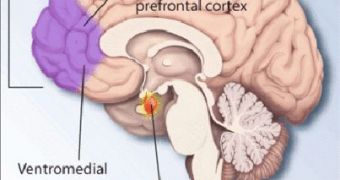Some cases of post-traumatic stress disorder (PTSD) can be explained by a genetic propensity towards developing the condition, the results of a new scientific study indicate. The finding may pave the way for developing a test that could identify at-risk individuals early on.
This could come in handy for the military, which is paying large sums of money for handling veterans who got their symptoms while serving in the battlefield. The Army has been especially eager to develop early detection tools, funding numerous studies in this direction.
In the new study, the Emory University team managed to identify a particular genetic profile that they were able to associate with a much higher risk of developing PTSD. While the finding does not cover a very large part of the population, it does represent a step in the correct direction.
PTSD is a condition that is usually triggered by a trauma, or exposure to a harsh event. Past studies have found that genes play a role in this, and the new work finds that several variants of genes involved with regulating the mood-controlling neurotransmitter serotonin are the main culprits.
Having these variants does not necessarily mean that a person will most certainly develop PTSD. What it does mean is that exposure to traumatizing events or actions is more likely to trigger the condition than in persons who do not have that particular genetic profile.
“One of the critical questions surrounding PTSD is why some individuals are at risk for developing the disorder following a trauma, while others appear to be relatively resilient,” Emory researcher and lead study author Kerry J. Ressler, MD, PhD, explains.
“It is known that genetic heritability is one component of the differential risk for PTSD, but the mechanisms remain relatively unknown,” he adds, quoted by PsychCentral. The researcher and his team conducted their study on campus students.
All participants had been interviewed for a scientific study a short while before the 2008 mass shooting that affected the campus of the Northern Illinois University. The same people who gave the original interview were asked to meet the research team again.
“We believe that the strength of this study is the availability of the same validated survey measure to assess PTSD symptoms prior to and after a shared acute traumatic event,” Ressler explains.
He argues that the response our bodies give to severe trauma may be mitigated or accentuated by the functions of serotonin transporter gene. If a genetic profile boosts response to trauma rather than subdue it, than developing PTSD becomes probable.

 14 DAY TRIAL //
14 DAY TRIAL //